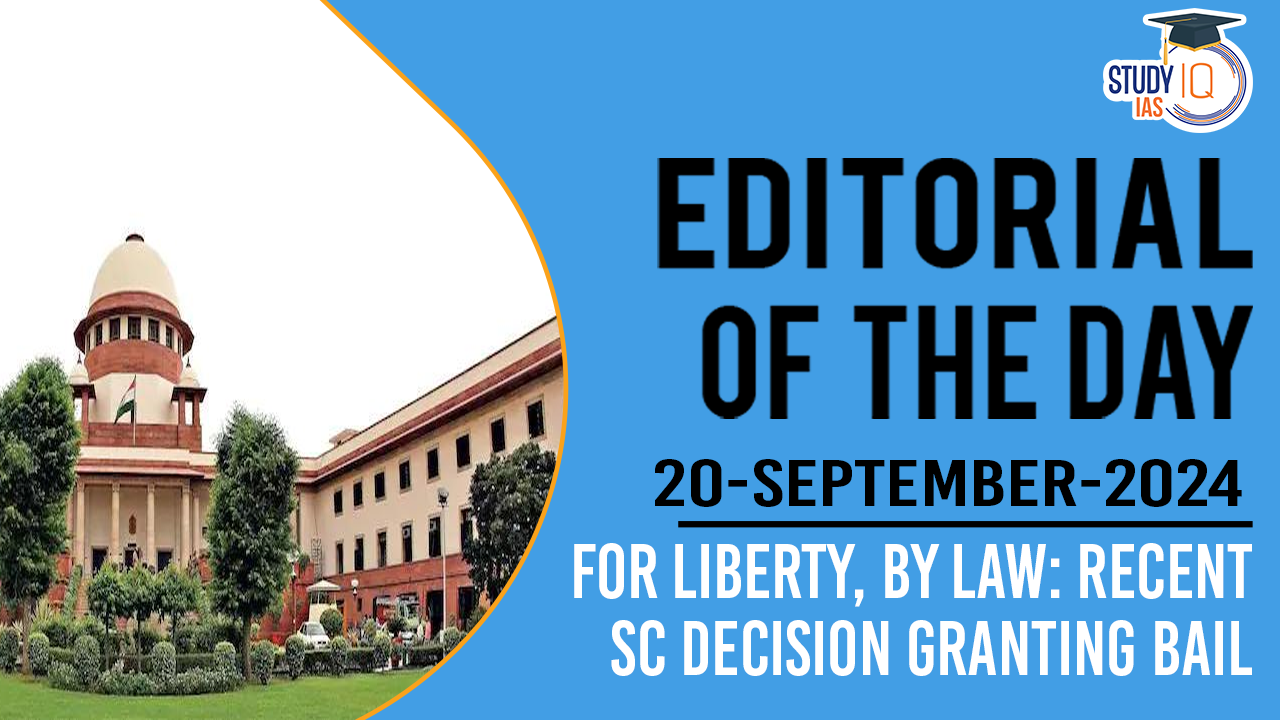Table of Contents
Recent Supreme Court Developments
- Bail and Due Process Rights: In July 2023, a Supreme Court bench addressed the issue of bail under stringent laws like the Unlawful Activities (Prevention) Act (UAPA).
- The Court ruled that prolonged trials cannot justify indefinite detention, reinforcing that no law can permit permanent custody without due process.
- The Court highlighted that the right to life and liberty is “overarching and sacrosanct,” allowing constitutional courts to grant bail even when penal statutes impose strict conditions.
- Emphasis on Fundamental Rights: In a subsequent ruling in August 2023 the Supreme Court reiterated this principle in the context of the Prevention of Money Laundering Act (PMLA).
- The Court emphasised that the right to life and personal liberty is a higher constitutional right, and that statutory provisions must align with this constitutional principle.
- The Court’s key assertion was that deprivation of liberty cannot be the norm, even in cases involving serious crimes like money laundering, and bail should be granted unless compelling reasons dictate otherwise.
- This marked a significant affirmation of the judiciary’s commitment to protecting fundamental rights under Article 21.
| The Historical Context of Article 21 and Due Process |
|
Revival of the Pro-Bail Approach
- Historically, bail has been viewed as the rule, and jail as the exception, a principle advocated by legendary justices like Krishna Iyer.
- This principle was aimed at ensuring that personal liberty is preserved and that individuals are released on bail unless compelling reasons are presented to deny it.
- However, stringent laws like the PMLA and UAPA have created high thresholds for seeking bail, making it extremely difficult to secure.
- The recent SC decisions demonstrate a renewed focus on maintaining the balance between special laws and fundamental rights, reviving the pro-bail approach in Indian jurisprudence.
Vindication of the Vision of the Constituent Assembly
- Despite Article 21 not explicitly mentioning due process rights, the founding members of the Constituent Assembly repeatedly asserted the need to protect personal liberty.
- Although they faced setbacks, the recent Supreme Court decisions affirm that due process rights are at the core of fundamental freedoms in India.
- In the 75th anniversary year of the Indian Constitution’s adoption, these rulings offer the strongest reassurances that the founding fathers and mothers’ vision for India’s constitutional values, especially in safeguarding personal liberty, is being realised.


 Places in News for UPSC 2025 for Prelims...
Places in News for UPSC 2025 for Prelims...
 New Phase of Operation Chakra to Combat ...
New Phase of Operation Chakra to Combat ...
 Soyuz Aircraft: History, Design and Sign...
Soyuz Aircraft: History, Design and Sign...





















